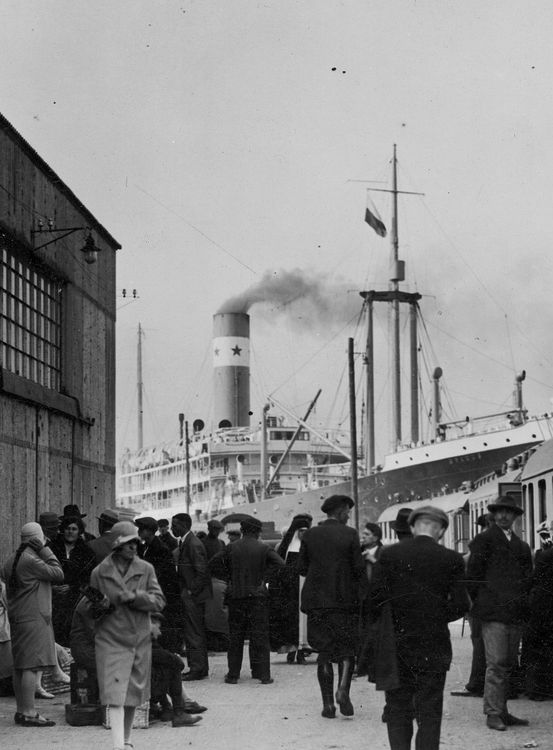Zehra Kosova
Zehra Kosova (1910–2001) was a labour activist, trade unionist, and communist organizer who dedicated her life to improving workers’ rights. She was born in Kavala, Greece to a family of Roma tobacco workers. Her exposure to left-wing ideas was precocious as her family participated in the local communist association. The 1924 population exchange between Turkey and Greece forced her family to resettle in Turkey, where she worked at tobacco factories – an industry with a traditionally high proportion of women workers – in various cities in Anatolia before settling in Istanbul in 1931. Soon after, her father’s death left her the primary provider for her mother and sister, which contributed to the deepening of her political awareness.

Women and foreman at the Samsun Tobacco Factory, where Zehra Kosova worked (Source: Salt Research)
For Kosova, the trigger that launched her labour activism was a leaflet by the then-illegal Communist Party of Turkey (TKP) advocating for an eight-hour workday and equal pay. Soon after reading it, she joined the underground tobacco workers’ movement organized by TKP activists. A literate and well-trained worker, she was often paid the same wages as men, a rare occurrence at the time. In 1934, she travelled to the Soviet Union to study at the Communist University of the Toilers of the East (KUTV) in Moscow. There, she received political and vocational training, met prominent Turkish communists, and married a fellow activist, Mustafa Iskender, scheduling their wedding on International Women’s Day to make a political statement.
Upon her return to Turkey in 1937, Kosova faced relentless police surveillance, imprisonment, and even torture due to her communist activities. She was one of the founding members of the Autonomous Tobacco Workers’ Union, leading a successful strike for equal pay. As Turkey transitioned to a multi-party political system in the 1940s, she became active in legal trade union work. Yet even within legal unions, Kosova and her comrades were targeted for their leftwing political stances and faced police harassment, job losses, and imprisonment: as late as 1958, she was jailed again.
As was typical for tobacco workers, Kosova’s employment was seasonal and precarious. Her activism was not limited to the workplace. She was also a community leader among migrant and tobacco workers in Istanbul – a multi-ethnic community that comprised many Armenian, Jewish, and Greek labourers in the late 1920s and 1930s. She fought for better wages, working conditions, and access to healthcare. In the 1960s, unable to find work in the tobacco industry, she transitioned to textiles, where she continued her activism, securing collective bargaining rights and improved conditions for workers. She retired in 1970 after nearly four decades of struggle.
Her 1996 autobiography, I Am a Worker, remains a key source for understanding the experiences of women and migrant workers in early republican Turkey. Despite political repression, Kosova’s legacy endures as a symbol of resilience in Turkey’s labour movement.


